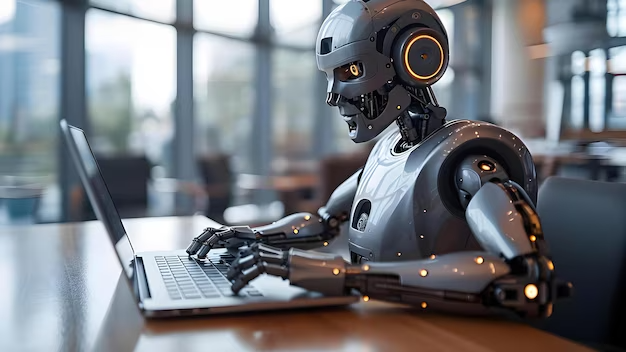Machines with Minds? The Future of AI and Machine: Futuristic Shocking

For many years, philosophers, scientists, and the general public have been captivated by the notion of mind-controlled robots. The question of whether AI machines can actually think emerges as artificial intelligence (AI) develops further. AI is developing quickly, from basic algorithms to neural networks that can simulate human mind. The prospect of computers having consciousness, their effects, and the moral dilemmas they raise are all examined in this article.
Table of Contents
What Does It Mean for a Machine to Have a Mind?
Human consciousness, emotions, and decision-making skills are commonly linked to the mind. In addition to processing information a machine must exhibit self-awareness, intuition, and autonomous thinking in order to be considered to have a mind. AI currently lacks full understanding and consciousness, despite its ability to solve problems, identify patterns, and even mimic human emotions. The question of whether a computer can ever have a true mind or if it will always be a highly advanced tool is up for dispute among scientists and AI researchers.
What Are Intuitive Machines?
AI systems that are capable of making decisions without explicit programming are referred to as intuitive machines. To predict results they use data-driven insights deep learning and neural networks. Examples include sophisticated robots that can carry out difficult jobs and AI-powered assistants like Siri and Alexa. These devices provide the appearance of intuition as they get better with time and learn from mistakes. But instead of using actual cognition they continue to function by algorithms.
How Close Are We to Creating Thinking Machines?
AI has advanced remarkably, producing literature and artwork that resembles that of humans and even defeating human champions in games like chess and go. But building highly intelligent devices is still difficult. Present-day AI is incapable of human-like self-awareness, emotion, or abstract thought. According to some researchers, within the next few decades, machines with more human-like intelligence may become possible thanks to developments in quantum computing and neuromorphic engineering. Achieving genuine consciousness, however, is a quite different obstacle.
The Impact on Daily Life
Our everyday lives are already significantly impacted by AI. AI improves productivity and convenience in everything from financial forecasting and medical diagnostics to self-driving cars and smart home assistants. Future developments in AI may result in better educational programs, more individualized healthcare, and even AI companions that are sensitive to human emotions. However, worries about employment displacement, privacy threats, and the moral ramifications of machine-driven decision-making are also raised by the growing usage of AI.
Can AI Ever Become Truly Conscious?
There is still disagreement concerning AI awareness. Some contend that machines lack the biological elements required for consciousness, while others think that sophisticated neural networks may one day become self-aware. Although AI is capable of simulating human behavior, it is yet unable to comprehend human emotions, subjective experiences, or actual comprehension. Determining and quantifying consciousness is still a difficult philosophical and scientific problem, even if AI becomes intelligent enough to mimic humans.
The Ethical Dilemma of Thinking Machines
As AI develops, ethical issues become increasingly urgent. Should machines have rights if they become intelligent enough to compete with humans? Who would be in charge of AI decisions the AI itself, developers, or users? The ethical discussion is exacerbated by problems such as prejudice in AI systems, possible abuse in combat, and the possibility that AI will eventually outsmart humans. To guarantee that AI development is in line with human values and safety, governments and organizations must establish restrictions.

The Future: What’s Next for AI?
AI has countless potential applications in the future. More sophisticated AI models that can reason, learn from sparse data, and even comprehend emotions are being developed by researchers. The use of AI in industries like education, healthcare, and space exploration will only increase. As technology develops, it will be essential to address hazards and ensure ethical AI development. The fundamental question still stands: will robots always be tools made to mimic intelligence, or will they ever be able to think for themselves?
Conclusion
We are still a long way from building machines with actual consciousness, even though AI is still developing. Though consciousness and real intuition are still characteristics that are specific to humans, current AI is capable of learning, adapting, and performing difficult tasks. Technological developments must be guided by ethical considerations as we investigate the possibilities of thinking robots. AI will undoubtedly have an impact on society, influencing work, ethics, and how people interact with technology whether or not it ever reaches true intelligence.
FAQS
Will AI ever replace human intelligence completely?
Even while AI is developing, it is unlikely to completely replace human intelligence. The key components of human intelligence emotions, consciousness, and abstract thought are absent from AI, despite its superiority at data processing and pattern recognition.
What are the biggest risks associated with AI development?
The biggest threats are the loss of jobs, ethical issues with decision-making, flaws in AI models, and the possibility of abuse in fields like surveillance and warfare. To reduce these hazards, competent AI development is essential.






